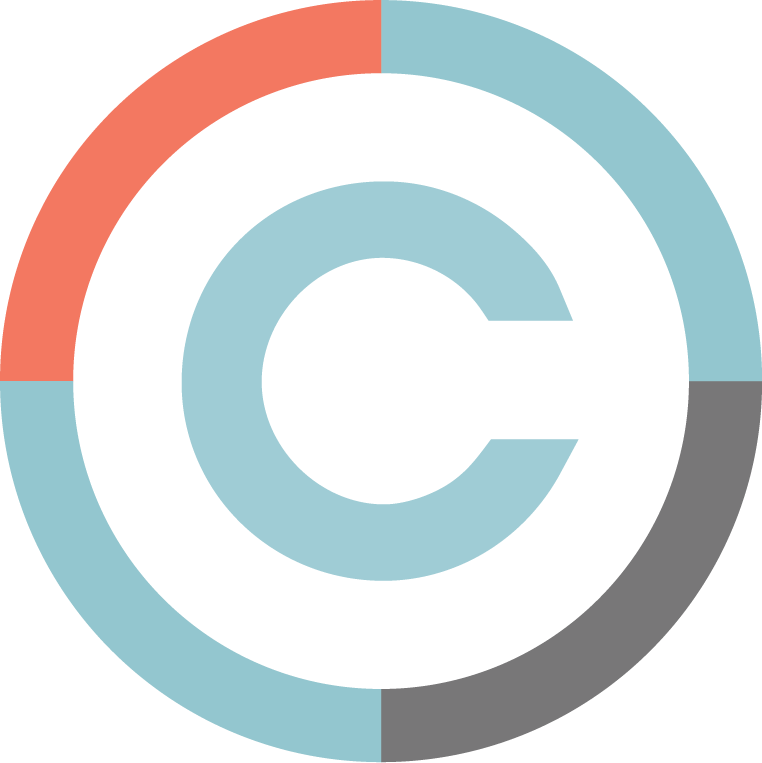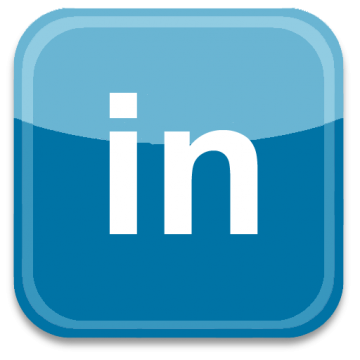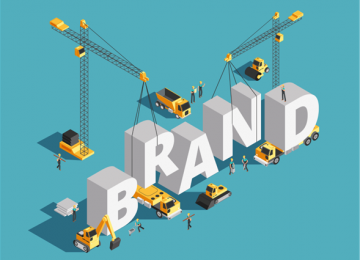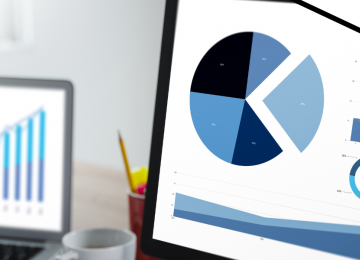So you have a website (i.e. WillDoYourHomeworkforKFC.com) and it has just been sitting on the web since you put it up there. Like 3 years ago. No one has visited, except by accident (that one guy looking for the nearest KFC) and you are looking for ways to get some traffic and thereby get some business.
Answer: internet marketing. Genius! Who would have thought that a website (pages on the internet) would benefit from internet marketing (marketing to people via the internet)? It's the best thing since the drive-thru was invented: selling people fast food without getting out of their car, verses selling people stuff on the internet while they are on the internet.
Problem: what to do exactly? You've heard SEO was the most effective internet marketing method, but it takes months to see results and you need traffic now. You could start a Facebook page, but that's no guarantee you'll get the traffic you want to your page right now.
Simple: PPC (pay per click) advertising.
What Is PPC?
PPC or Pay-Per-Click advertising is the process by which you are able to advertise your website online, targeting consumers by demographic and driving that traffic to your site, paying only for actual advertising results – making the results statistically more cost-effective than traditional media.
Pay per click means you only pay every time somebody clicks your ad (and goes to your website). That means you only pay for results. Win!
You know them: they are the little ads on the side bar while you are on Facebook, the text on the side and top of Google trying to get you to click them instead of the results of your search, the banners around the YouTube videos you watch. Annoying sometimes (okay most of the time) – but haven't you, at some point, clicked one? People do. And they work. And no one had to hold a sign out on the corner and freeze to death.
 Why PPC?
Why PPC?
Okay, so you don't do homework in exchange for fried chicken and your website probably already gets some traffic, but you are looking for more, a lot more, and more business generated from your website. Why choose PPC over any other type of internet marketing?
My most professional answer is, if you can afford it, you don't. PPC is an excellent counterpart to every internet marketing campaign. Ultimately, SEO will get you the very best results (making you rank high enough on Google will get you traffic for those highly searched keywords, every time), and social media is an integral part of a successful web presence, but if you want immediate traffic and can't afford to adjust your website to search engine criteria or put the time into a successful social media campaign, PPC works – immediately.
Consider these benefits of PPC.
The Benefits of PPC
#1 Speed
PPC works on a bidding system. You can competitively bid so more people see your ad and the better you are at this science, the more your ad will appear and the less you will pay every time someone clicks the ad and goes to your website. This means if you put an ad up today, you can get traffic today from that ad! No waiting! And you wanted to be top of the list? With competitive bidding, you can – immediately.
How about new product releases, the new daily deal for your shop or online store? Change any ad for any season or reason and the change is immediate (note: most ad carriers take a few minutes to a couple hours to approve ads, but it's a quick turnaround).
#2 Targeting
Don't you wish you could target only certain types of people from certain places with certain interests with your advertising and not have to pay for people who don't care to see your ads? Well, with PPC you can!
Depending on the medium used to show your ads, you can target gender, language, geography, times, and so much more. Using Facebook, you can target only people who like a certain company, i.e. you are FedEx® and you want to target all the people that "liked" UPS® to give them a better deal. You sell Powerbars™ and you want to target all Americans over age 25 who like any kind of sport. Done. You can include or exclude times or places; with LinkedIn you can target only senior executives or instead, accountants. The possibilities are almost endless and just as awesome!
Here's a quick look at what you can target (or exclude) with a few of the main PPC advertising means out there.
- Google: location, gender, age, language, keywords, websites (particular and categories), time of day, type of computer/mobile device.
- Facebook: location, gender, age, time, language, interests (this a huge one: both particular and general), type of computer/mobile device, & whether they are fans or even friends of fans!
- LinkedIn: location, company, job title (function and seniority), school, skills, group, gender, & age.
I bet your advertising mouth is watering as you begin to imagine the possibilities these targeting tools have for your business.
#3 Results
 Are Immediate and Cost-Effective
Are Immediate and Cost-Effective
No internet marketing tool brings more immediate results. If you bid correctly and design your ads right, you will get traffic to your site; and if you have a decent website and sales pitch, you are going to sell!
The typical click through rate (CTR) for a decent ad campaign is anywhere from 1-5% (the ratio of people who see your ad to those who click through). The average website conversion rate for a decent website and proposition is about 2-5% (ratio of visitors to your website to those who convert (buy your product, fill out your contact form, etc.). So do the math.
Take the lowest average (always the safest option). If 1% of your ad viewers click the link to your website (1 out of 100), and 2% of them convert to what you are selling (1 out of 50), you need 100 ad views times the amount of people on your website it takes to convert to a sale (50); which means 5,000 people need to see your ad for you to sell a product or generate an interested lead via your website.
Seem like a hassle? Well, try knocking on 5,000 doors and compare the hassle.
The beauty of PPC is you won't pay for the 4,950 people who don't click your ad; you will pay for the 50 who actually visit your site. Like handing out free coffee coupons to get them into the shop. It works! Consider your product value. Depending on the exact targeting of your ad, you will probably begin paying about $1-2 per click, and if you're good or have good people working for you, they will half that cost in a few weeks by optimizing your campaign (another blog for another time).
So in the beginning you'll be paying $50-100 per sale or new lead; in the end about $25-$50. (Note: CPCs (cost per clicks) vary.) How much are you paying the salesman to knock on 5,000 doors? (A rhetorical question.)
Are Protected "Against" SEO
What does that mean?
If you go with SEO as an internet marketing option (which I highly recommend by the way, best results, just takes a while for them to kick in), you are going to need to fix the cracks and plugs in your website: all the little and big things search engine spiders can see that cause you to perform less online. This costs time and money. And guess what? SEO is always in development because search engines are always changing their algorithm to make themselves better and free from any shady techniques. Google makes a big change just about every year; which is about when every SEO nerd tweaks out for about 2 weeks straight.
With PPC, no change is necessary. The bidding system is separate from the search system so you can rank #1 for ads instantly and all the time if you design your ad and bid correctly; whereas you have to do a heck of a lot more to rank #1 (which is why 45% of search traffic goes to that #1, compared to about 1% going to the ads).
That's why I always recommend a broad internet marketing portfolio if your budget can stomach it: get immediate traffic with PPC, while we let the SEO work get executed and sink in. As SEO increases, the PPC ad budget can decrease. It's beautiful. Like a symphony. Okay, maybe only to geeks like me.
 Have Direct ROI Calculability
Have Direct ROI Calculability
Google Analytics can easily track of how many sales or conversions you receive from your ad campaigns, giving you a direct return on investment analysis of your ad campaigns. Try doing that with print media or even TV. Aside from customer surveys (which aren't even always correct, go figure), you can't get much better than that.
Knowing what kind of profits your advertising efforts are raking in is what every executive wants to know. It looks really pretty on PowerPoint, and so will your next bonus. (Hint, hint.)
So What Are You Waiting For?
Pay Per Click advertising is alive, well, and here to stay. Getting direct, immediate traffic to your website will never go out of style. However trying it on your own can lead to epic failure (we hear that a lot from our clients). Give us a call or shoot us an email. In fact, check out our PPC services page. We can shoot you a full proposal of our services – just ask – and have you on your way to generating some real traffic to your site, and business to your business.
It's a beautiful thing. But hey, don't take my word for it. Try it out today.














